ROBERT WILLIAMS BUCHANAN (1841 - 1901)
|
ROBERT WILLIAMS BUCHANAN (1841 - 1901) |
|
|
|
|
|
|
|
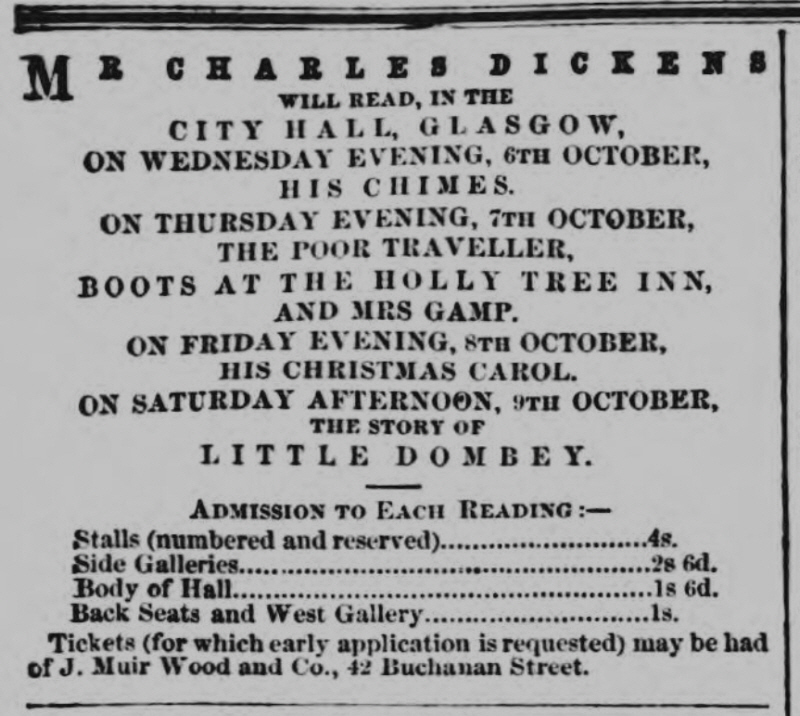 |
|
Review of the Public Reading by Charles Dickens. The Glasgow Sentinel (9 October, 1858 - p.4) |
||||||||||||||||||||||||||
|
Robert Owen died on 17th November, 1858. Considering the importance of Owen to Robert Buchanan Snr., I thought this editorial in The Glasgow Sentinel might be of interest. The Glasgow Sentinel (27 November, 1858 - p.4) |
||||||||||||||||||||||||||
|
And this is very ‘of its time’. The Glasgow Sentinel (4 December, 1858 - p.2) THE PHRENOLOGICAL DEVELOPMENT OF THE BY FREDERICK BRIDGES, OF LIVERPOOL. |
||||||||||||||||||||||||||
 |
||||||||||||||||||||||||||
|
Checking every edition of the 1858 Glasgow Sentinel for adverts for Buchanan’s two poetry books, the following advert appeared in every issue. I still have no idea what ‘Alliance Trousers’ are. |
||||||||||||||||||||||||||
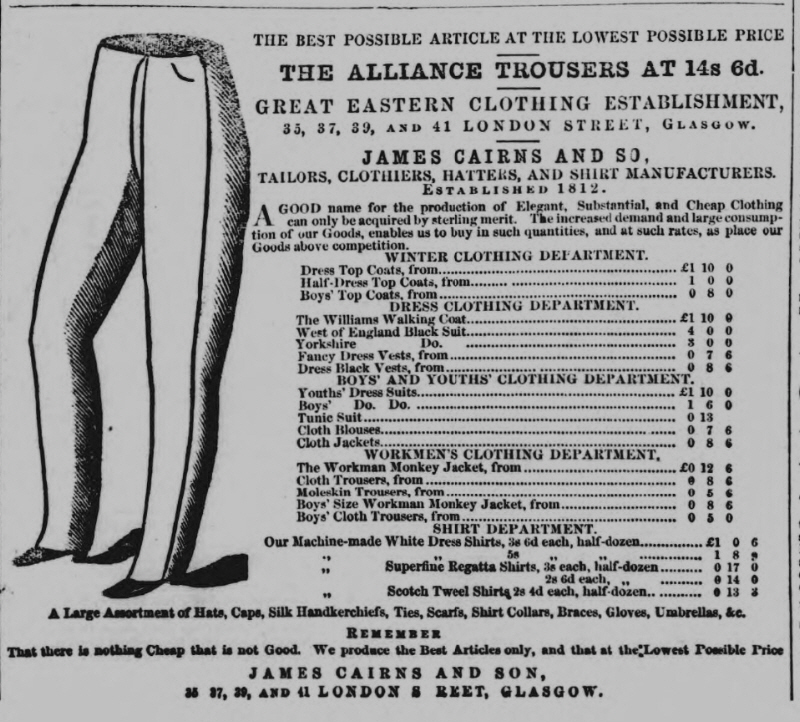 |
||||||||||||||||||||||||||
|
4. Robert Buchanan Snr. and the early years of The Glasgow Sentinel
The Glasgow Herald (14 April, 1851 - p.8) |
||||||||||||||||||||||||||
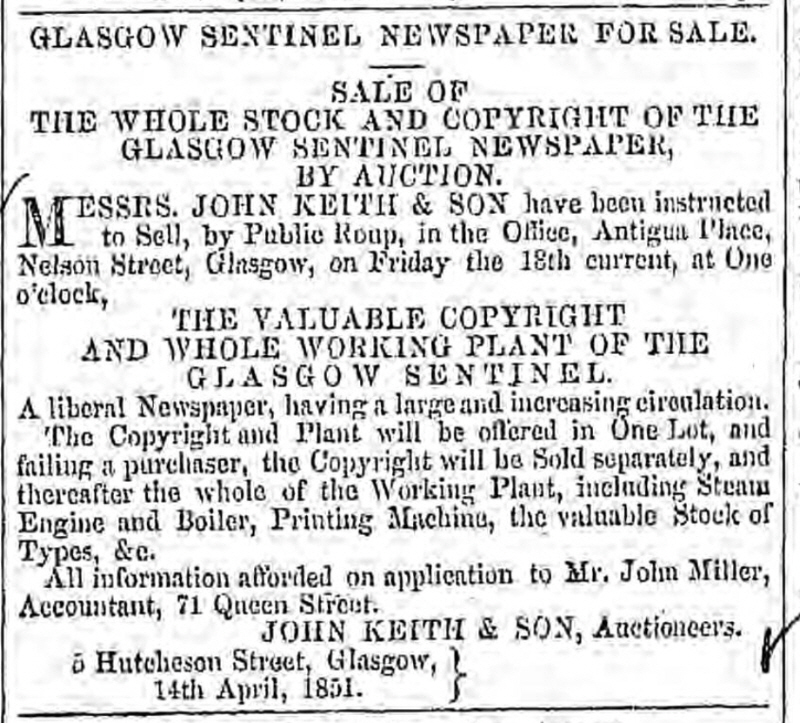 |
||||||||||||||||||||||||||
|
The Glasgow Herald (18 April, 1851 - p.8) |
||||||||||||||||||||||||||
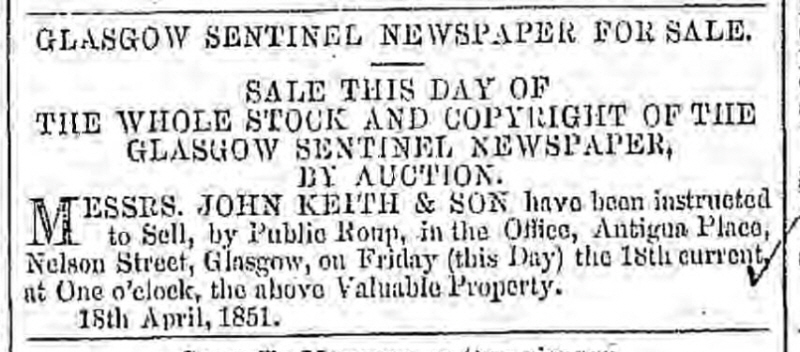 |
||||||||||||||||||||||||||
|
Robert Buchanan Snr. presumably bought The Glasgow Sentinel at this auction on 18th April, 1851. Information concerning how he financed the acquisition was revealed in his bankruptcy hearings in 1860: “I commenced business in Glasgow in 1851 as proprietor of the Glasgow Sentinel newspaper. I was then possessed of no capital; but I raised £600 upon a life insurance policy with the assistance of some friends in London. With £500 of this sum, and my own acceptances for £330, I purchased the copyright, plant, and book debts of the Sentinel from the then proprietors.” The Glasgow Sentinel was a weekly newspaper of 16 pages. There was a final issue of this length on 19th April, 1851, then it appeared as a 4 page paper until 31st May when the following announcement appeared: |
||||||||||||||||||||||||||
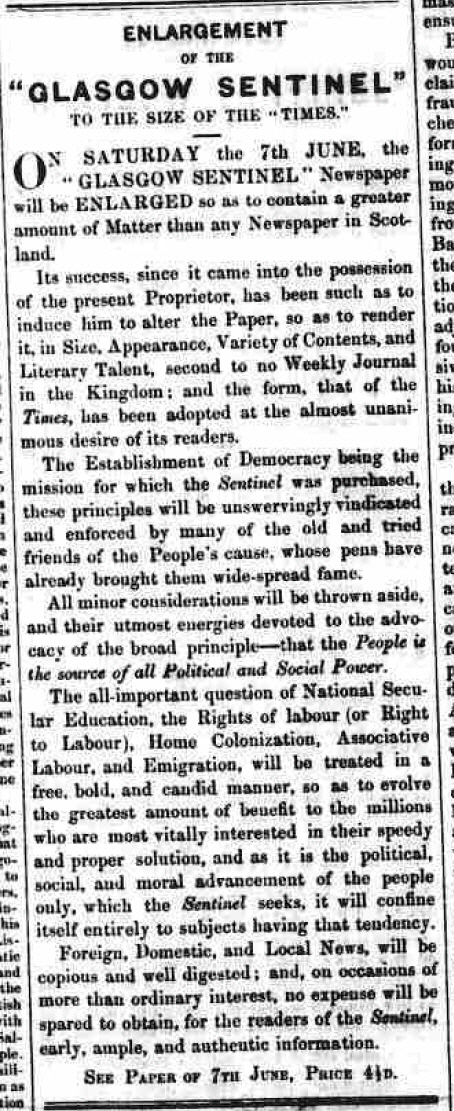 |
||||||||||||||||||||||||||
|
From the issue of 7th June, 1851 on, The Glasgow Sentinel was an 8 page paper (at least, going by the remaining copies in the B. L. online archive) and the editorial page carried this quotation from Tom Paine’s The Rights of Man beneath the title: |
||||||||||||||||||||||||||
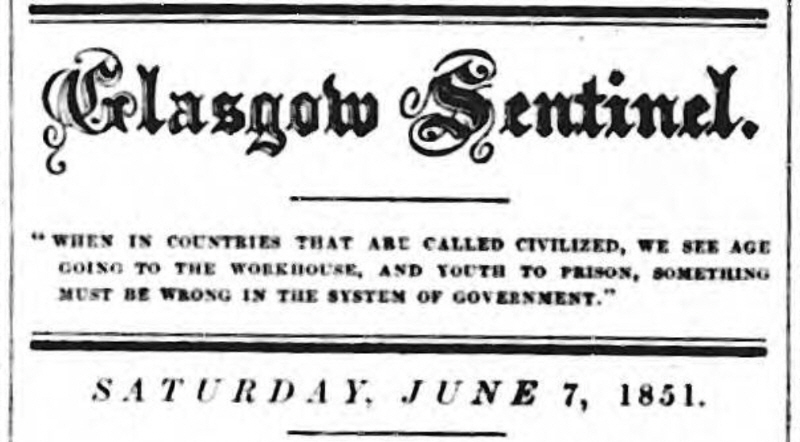 |
||||||||||||||||||||||||||
|
As well as being a newspaper proprietor, Robert Buchanan Snr. was also involved in the local politics of Glasgow, and stood (unsuccessfully) as a candidate in the municipal elections of 1852 and 1854. The Glasgow Sentinel (24 July, 1852 - p.5) |
||||||||||||||||||||||||||
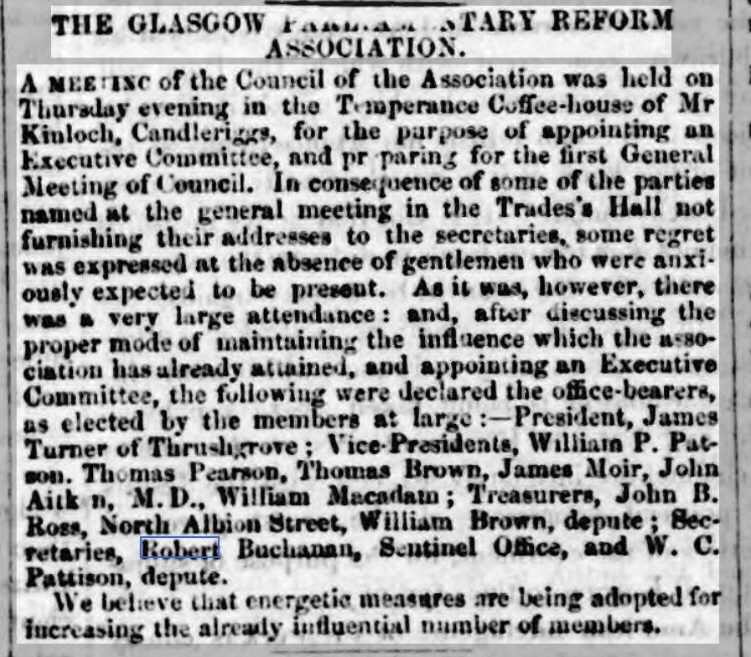 |
||||||||||||||||||||||||||
|
The Glasgow Sentinel (23 October, 1852 - p.1) |
||||||||||||||||||||||||||
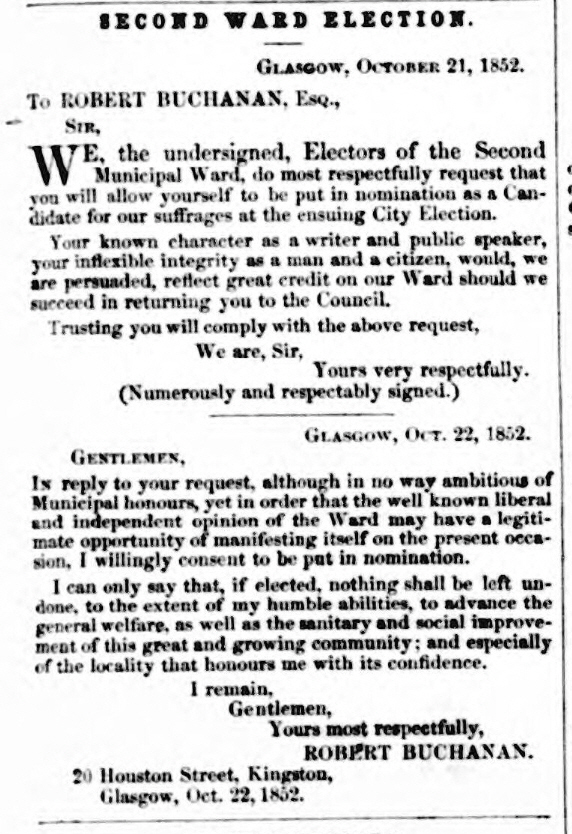 |
||||||||||||||||||||||||||
|
The Glasgow Sentinel (6 November, 1852 - p.5) |
||||||||||||||||||||||||||
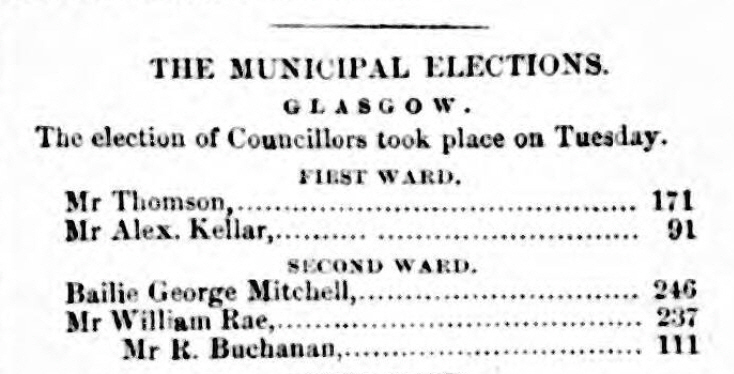 |
||||||||||||||||||||||||||
|
The Glasgow Sentinel (28 October, 1854 - p.5) |
||||||||||||||||||||||||||
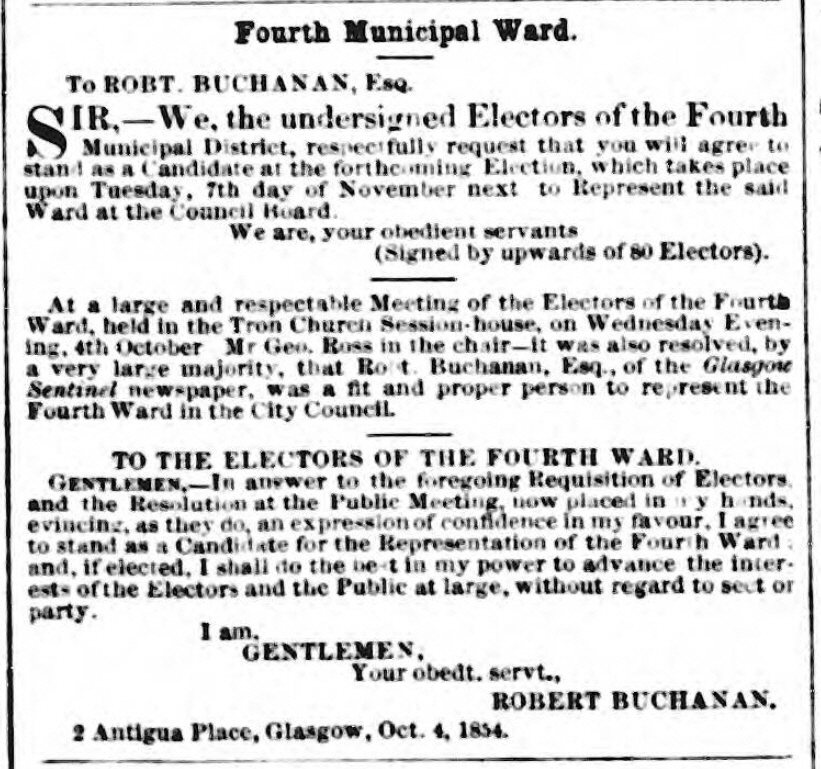 |
|
The Glasgow Sentinel (11 November, 1854 - p.3) |
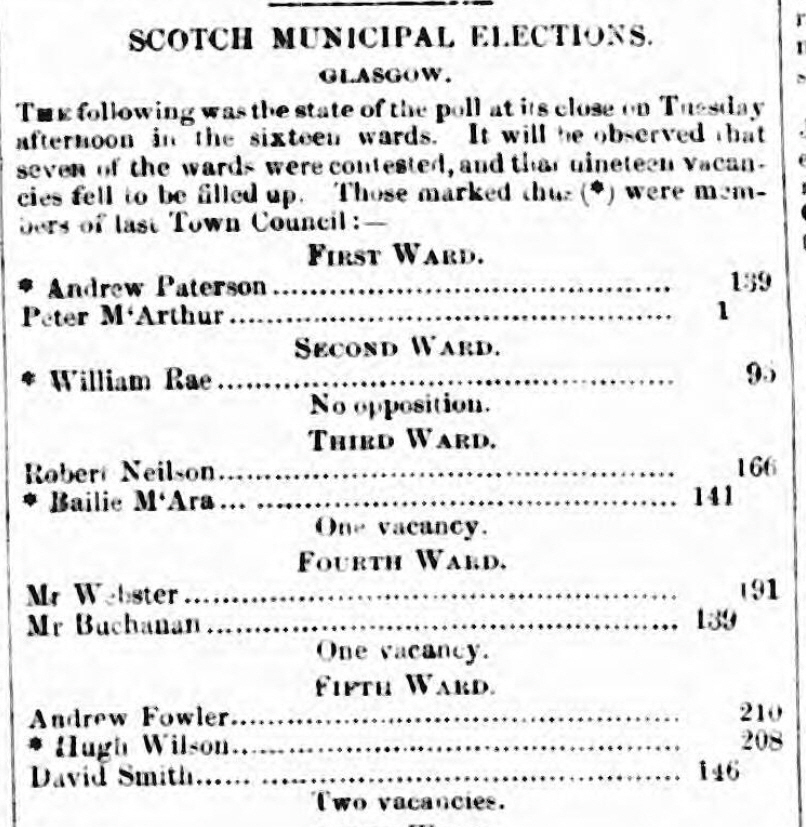 |
|
More information about Robert Buchanan Snr. is available on the following pages: The Bankruptcy of Robert Buchanan Snr. _____
Back to Robert Buchanan and The Glasgow Sentinel - main menu or back to Poems from Other Sources
|
|
|
|
|
|
|